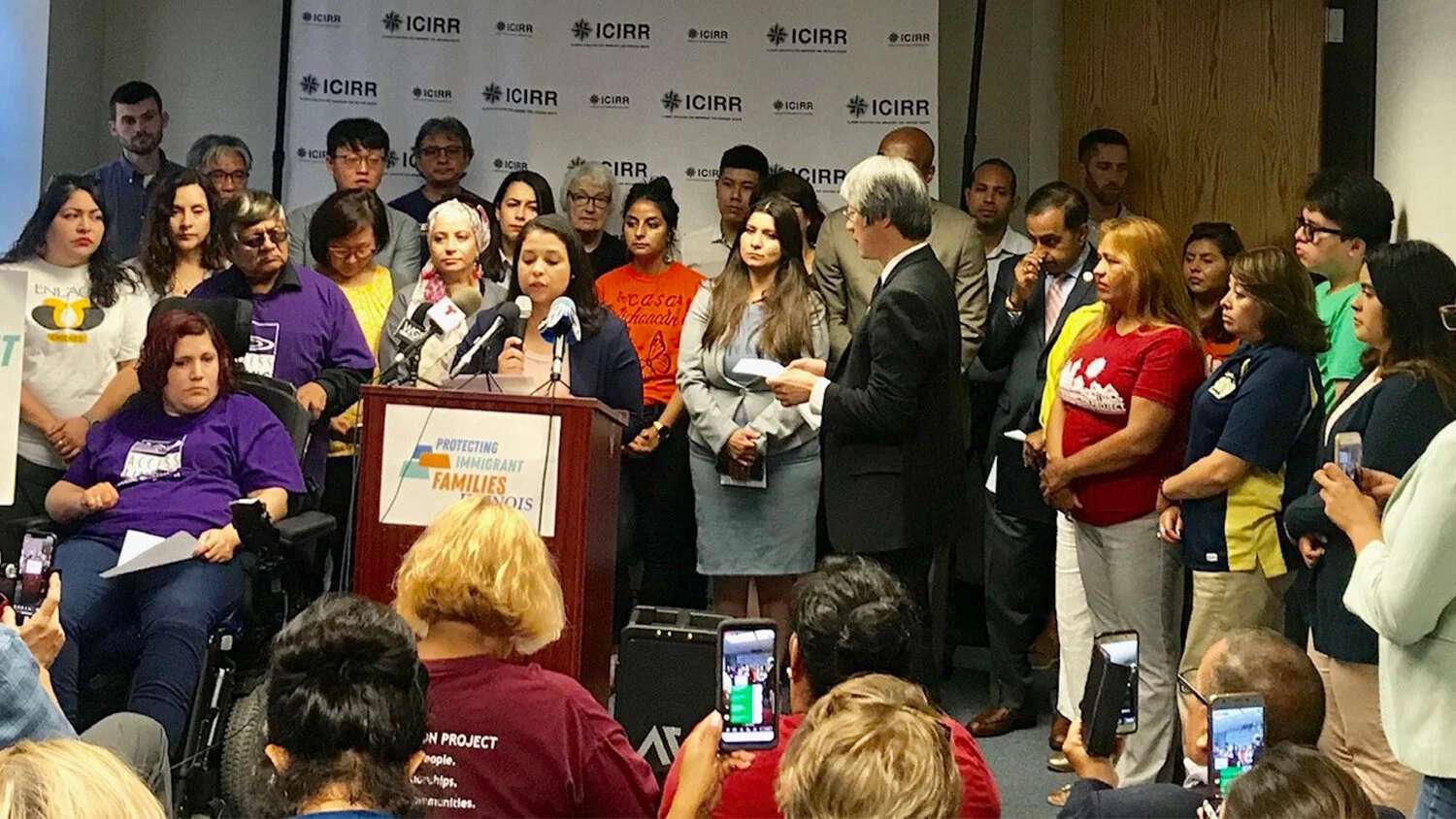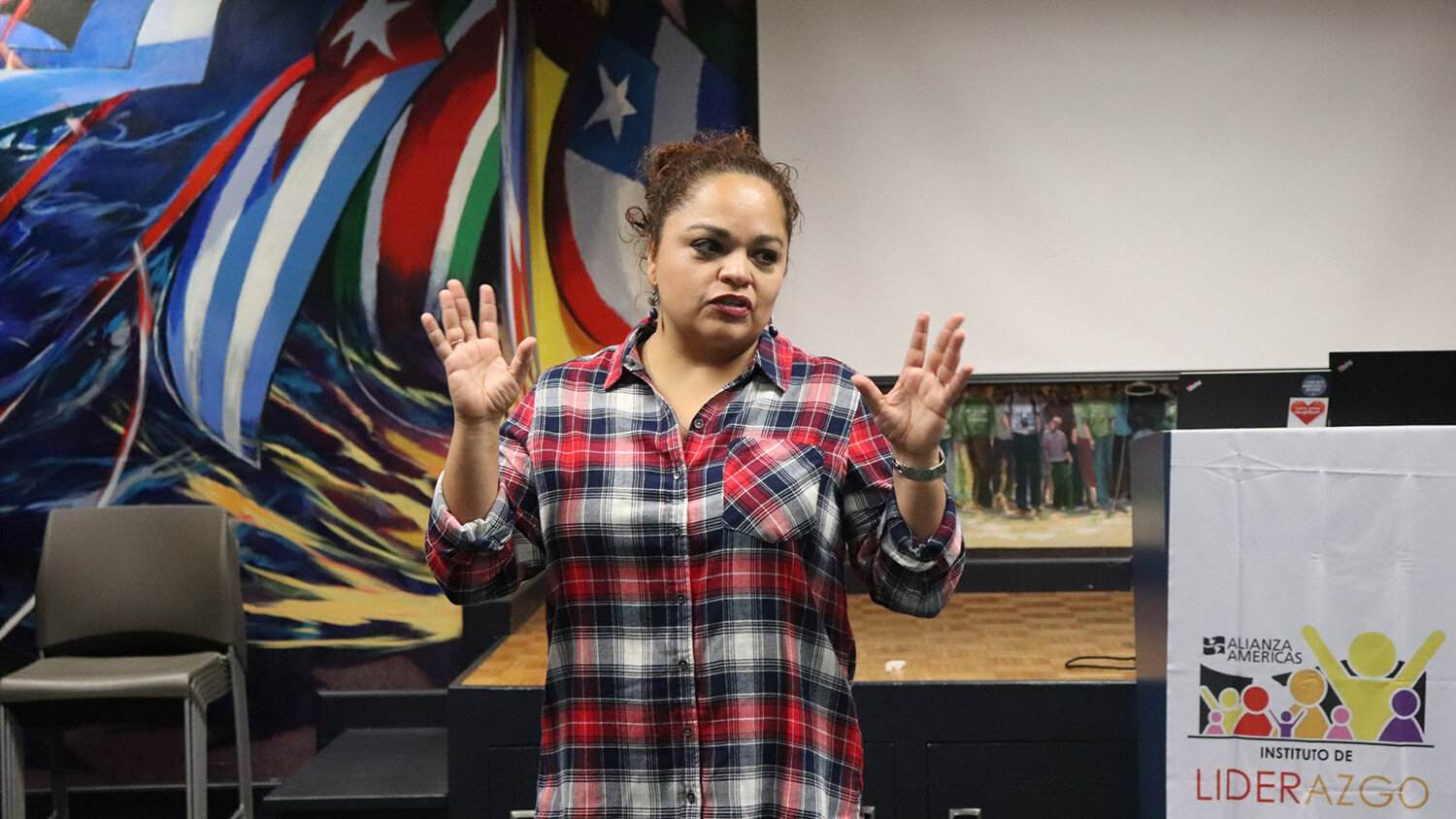Shriver Center on Poverty Law
The Shriver Center argued in federal court as to why the public charge rule violates federal law. Photo credit: Shriver Center.
The role of policy and advocacy in the face of public charge
The Shriver Center on Poverty Law works with and for people living in poverty to power advocacy strategies that advance racial and economic justice. The Shriver Center fights for economic and racial justice by litigating, shaping policy, and training and convening multi-state networks of lawyers, community leaders, and activists nationwide. They have worked in partnership with the Illinois Coalition for Immigrant and Refugee Rights (ICIRR) on a number of efforts to increase access and remove administrative barriers that immigrants face in receiving services.
In 2018, the Trump administration proposed a new regulation to dramatically expand the public charge doctrine that had a planned effective date of October 2019. Under this rule, immigrants can be denied admission to the United States or legal permanent residency if they are deemed more likely than not to rely in the future on certain government support, such as some Medicaid programs, Supplemental Nutrition Assistance Program (SNAP), and three specific federal housing programs. Funding from the Walder Foundation has helped to support the Shriver Center’s litigation efforts as well as legal services, education, technical assistance, and training on the public charge rule for those who provide professional and social services to the immigrant community—work that has been especially critical given the COVID-19 pandemic, a time when public benefits are essential for a population that represents a significant portion of the essential workforce.




In September 2019, on behalf of ICIRR, the Shriver Center and its partners filed one of nine federal lawsuits to halt the implementation of the public charge rule. As a result, a preliminary injunction was granted by the lower courts in October 2019, temporarily blocking the rule from being implemented in Illinois. While the federal government appealed this state-wide preliminary injunction, the Court of Appeals for the Seventh Circuit declined to stay the state-wide injunction. However, in early 2020 the U.S. Supreme Court stayed all the preliminary injunctions granted, including the Illinois preliminary injunction, permitting the public charge inadmissibility rule to go into effect nationally in February 2020 while the cases continued to be litigated. In June 2020, the Seventh Circuit upheld the Illinois preliminary injunction. The federal government recently appealed the Seventh Circuit’s preliminary injunction to the U.S. Supreme Court.
In August 2020, in light of the Seventh’s Circuit’s decision upholding the Illinois preliminary injunction, ICIRR filed a motion for summary judgment asking the District Court to vacate the public charge rule because the Department of Homeland Security (DHS) violated the Administrative Procedures Act (APA). If the motion is granted, DHS would not be allowed to further implement the rule. The District Court has yet to issue a decision on the motion.
Discriminatory motive behind public charge
In addition to alleging that the DHS violated the APA, ICIRR alleged that the DHS intentionally designed the public charge rule to discriminate against Latinx immigrants and immigrants of color in violation of the Equal Protection Clause. ICIRR was allowed to proceed with discovery on this claim and potentially uncover further evidence of a discriminatory motive behind the Trump Administration’s public charge rule.
The public charge rule is currently in effect in Illinois and nationally. The Shriver Center continues its litigation in federal court to stop the implementation of the public charge inadmissibility rule.
Get more stories like this delivered to your inbox.
Sign up with your email address to receive news and updates.











